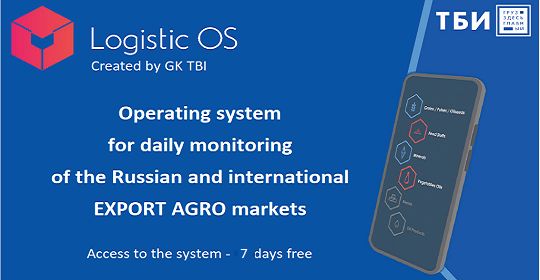Export wheat prices continue to decline, despite the fact that they have already fallen significantly at the moment.
According to the latest data from Rusagrotrans, the volume of Russian wheat supplies abroad in June may amount to about 4.3 million tons.
This is an increase of approximately 14% compared to June last year, since in the same month of 2023 the supply volume amounted to 3.77 million tons.
However, plans for July are much more modest. Analysts believe that export volumes are unlikely to exceed 2.9 million tons next month.
This is almost a third less than in July last year, when Russian exporters sent about 4.2 million tons abroad.
One of the reasons that may force Russia to reduce the volume of wheat exports is a decrease in prices for this type of product. Today, a ton of Russian wheat costs about $231 per ton.
On the one hand, this is the same price level as a year ago. On the other hand, over the last week prices have decreased by $2.5, and since the beginning of June — by as much as $23.5 per ton.
In general, prices for Russian wheat follow world prices, experts say. Currently, French wheat costs about $239 per ton, German wheat costs $244, and American wheat costs $229.
Moreover, all exporters from these countries are also facing lower prices, just like their Russian colleagues. However, the fact that Russian prices still remain minimal compared to competitors is positive, since it allows us to maintain demand for their products.
Experts say the main reason for the decline in wheat prices both within the country and in the world as a whole is the expectation of a new harvest, the harvest of which will begin in the Russian Federation in the coming days.
This harvest is already beginning to put pressure on prices and contribute to their fall, analysts say.
At the same time, in the current situation, many countries continue to buy Russian wheat at current prices.
The list of such countries is quite extensive: it includes Egypt, Turkey, Algeria, as well as Saudi Arabia, Yemen, Tanzania, Nigeria, Libya, Mozambique. Stable demand from these states is expected in the future, experts say.
A reduction in export duties, which should occur on July 1, can also help Russian farmers.
An increase in the base price for calculating duties should lead to the fact that they themselves will decrease, while Russian exporters have repeatedly noted that these duties are one of the main factors that impede profits from exports.

